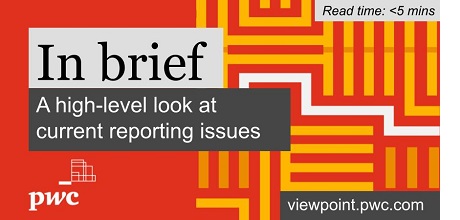Key points
- In December 2023, the International Sustainability Standards Board (ISSB) published amendments to the SASB Standards to enhance their international applicability.
- The ISSBTM also published new educational material illustrating the nature and social aspects of climate-related risks and opportunities.
What is the issue?
IFRS S1, 'General Requirements for Disclosure of Sustainability-related Financial Information', requires preparers to refer to and consider the SASB Standards in identifying sustainability-related risks and opportunities and in developing related disclosures, if no relevant IFRS® Sustainability Disclosure Standard is available.
In May 2023, the ISSB published an
exposure draft detailing its proposed methodology for enhancing the international applicability of the SASB Standards. Following feedback received on the exposure draft, the ISSB began the process of updating the SASB Standards. On 20 December 2023, the ISSB completed the process, and published
revised SASB Standards. The ISSB has stated that the updates remove and replace jurisdiction-specific references and definitions within the SASB Standards without significantly altering industries, topics or metrics. The ISSB also noted in the
Basis for Conclusions on Enhancing the International Applicability of the SASB Standards, that it had received feedback from stakeholders during the comment period on the exposure draft about considerations for future enhancements to the SASB Standards. The ISSB has said that future standard-setting work, including future updates to the SASB Standards beyond international applicability, will be informed by the ISSB’s consultation on agenda priorities.
On 14 December 2023, the ISSB published
new educational material, as part of its ongoing efforts to support application of IFRS S1 and IFRS S2. The new material contains three examples illustrating how an entity might report on risks and opportunities that are climate-related but which also contain aspects that are associated with nature or social issues.
The material provides an insight into how an entity might work through the process of identifying its climate-related dependencies or relationships including natural and social aspects of climate issues, how those relationships translate into climate-related risks and opportunities, and how an entity might then determine what metrics to disclose about those risks and opportunities. The topics of the examples used in the material also illustrate the possible scope of IFRS S2 the three examples in the material comprise a risk related to water scarcity, an opportunity associated with growing market demand for timber (a renewable building material), and a risk related to the entity’s management of its workforce as it transitions to a lower-carbon economy.
The educational material is not part of the IFRS Sustainability Disclosure Standards, but rather it explains how a preparer could apply the requirements of IFRS S2 in these specific hypothetical examples.
What’s the impact?
Preparers that are currently using SASB Standards to report on sustainability matters should review the updates to ensure that they understand any changes made to their industry standard.
Preparers that intend to report under IFRS S1 and IFRS S2 should ensure that, when they refer to and consider the SASB Standards, they use the most recent version of the Standards; and theyshould consider reviewing the educational material on nature and social aspects of climate risk, especially if such risks are relevant for the reporting entity.
Where do I get more details?













